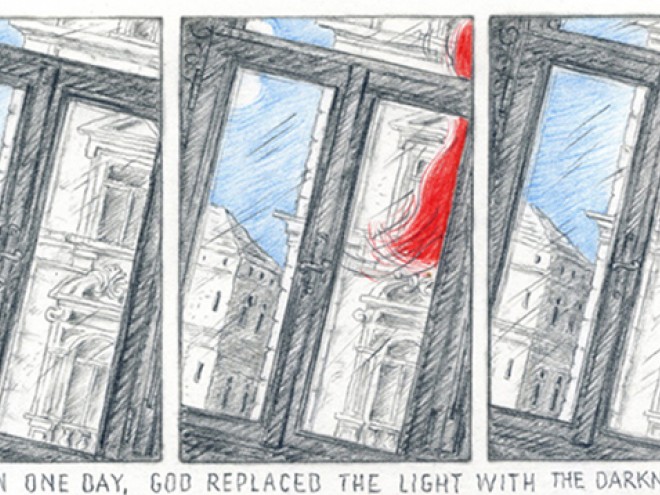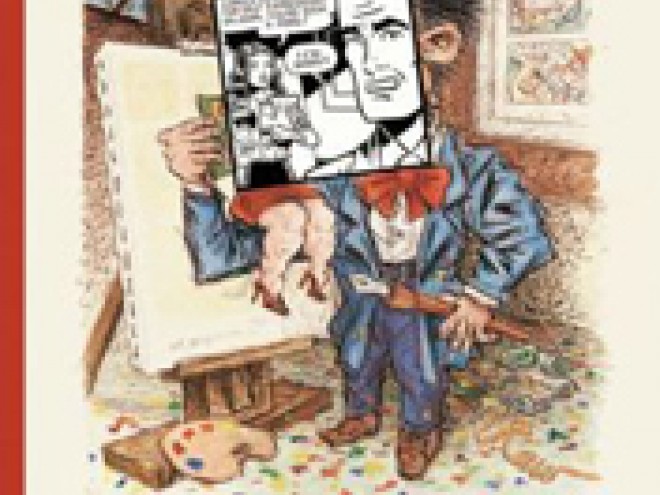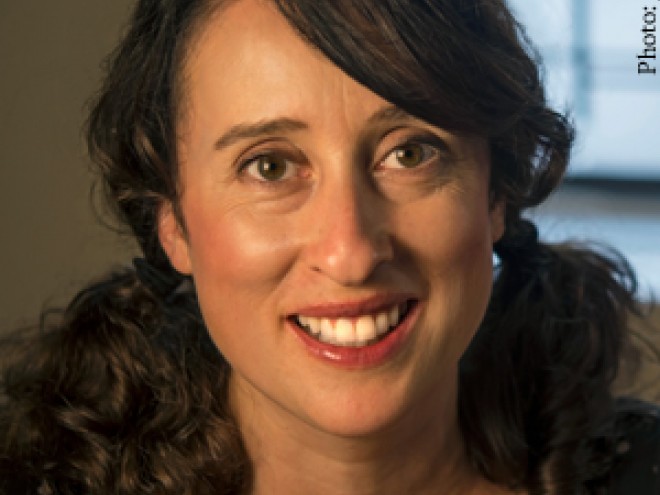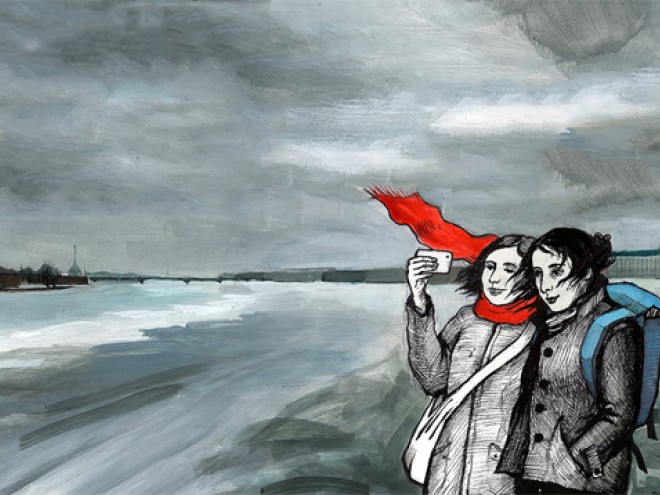Tahneer Oksman spoke to Roz Chast about her recently published book Can’t We Talk About Something More Pleasant.
 Tahneer Oksman: What compelled you to write this book about your parents, and why now?
Tahneer Oksman: What compelled you to write this book about your parents, and why now?
Roz Chast: I thought it was an interesting and emotionally complex story — sad and enraging, but sometimes funny. Also, I felt that the topic of how we as a society care for the extremely old is rarely discussed, and maybe that’s not so good, to pretend this doesn’t exist. After all, unless something “happens,” that’s the direction in which we’re all heading.
Why now? One reason is that dealing with my parents at “the end” was so draining that I needed to think about other things for a while. The other was that even when I decided I wanted to do a book on this subject, I had no idea how it would actually come together. It took me a while to figure out how to structure it.
TO: What was the process of writing this book like, and how did it differ from creating the cartoons you draw for The New Yorker?
RC: It was a very organic process. I used whatever form fit the content best.
I had a strong sense that it was a story with a beginning, middle, and end. Although a few of the cartoons in the book, like the ones I did after the attack on the World Trade Centers and the one about my mother’s sexual attraction/heel-height theory, were ones I had previously submitted in my weekly “batch” to The New Yorker, the process of doing a book was quite different from doing cartoons. Mainly, the cartoons are individual pieces, and when I was working on the book, I knew that they all had to work together.
TO: In addition to your comics and handwritten prose, you pepper your book with photographs and some of your mother’s poems. What other kinds of research did you have to do to help you remember the past?
RC: I had lots of emails that I had written to people about stuff that was going on while I was taking care of my parents. I was able to search for terms like “my mother,” “neurologist,” “The Place,” etc. So I was able to find pretty detailed accounts of events and conversations.
Also, some of the cartoons in the book were done years ago, like the “dirty checkers” one, the one about the shoes/sex talk with my mother, the oven mitt one, and the World Trade Centers ones. At the time I did those, I had no idea I’d eventually put them in a book about my parents.
TO: Early in the book, you relate your parents’ sensibilities — and especially their desire not to talk about death — to their Jewish immigrant pasts. How do you relate to your Jewish identity?
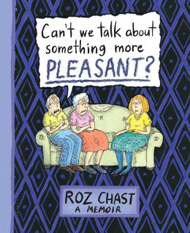 RC: On some deep level, I identify as a Jew. I don’t know exactly what that means. Maybe feeling a little bit like an outsider. And that no matter how much I assimilate, there will always be something about me that will not fit in.
RC: On some deep level, I identify as a Jew. I don’t know exactly what that means. Maybe feeling a little bit like an outsider. And that no matter how much I assimilate, there will always be something about me that will not fit in.
TO: Were there other works — of art or literature or comics or film — that inspired you or informed your book?
RC: Not consciously. When I’m working on a project, I tend to be pretty absorbed in doing it my own way.
TO: Do you think you might like to compose another long-form book or memoir in the future?
RC: I think so, but who knows?
Tahneer Oksman is assistant professor and director of academic writing at Marymount Manhattan College. Her book on Jewish identity in contemporary women’s graphic memoirs is forthcoming from Columbia University Press.
Tahneer Oksman is a writer, teacher, and scholar. She is the author of “How Come Boys Get to Keep Their Noses?”: Women and Jewish American Identity in Contemporary Graphic Memoirs (Columbia University Press, 2016), and the co-editor of The Comics of Julie Doucet and Gabrielle Bell: A Place Inside Yourself (University Press of Mississippi, 2019), which won the 2020 Comics Studies Society (CSS) Prize for Best Edited Collection. She is also co-editor of a multi-disciplinary Special Issue of Shofar: an Interdisciplinary Journal of Jewish Studies, titled “What’s Jewish About Death?” (March 2021). For more of her writing, you can visit tahneeroksman.com.
